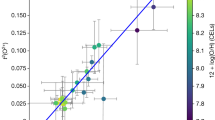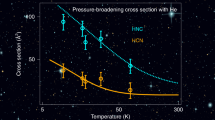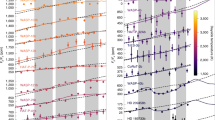Abstract
THE fact that the so-called nebulium lines are found to be associated with hydrogen and helium lines only, has frequently been taken as an indication that these lines are somehow emitted by hydrogen or helium, although it has been a great difficulty for this hypothesis that terrestrial experiments always have failed to reveal the lines. The physical conditions prevailing in nebulae are very probably characterised by exceedingly low density combined with the absence of nearly all possible sorts of disturbing influences, apart from a field of radiation which, however, in only a few cases can be comparable in intensity to that of faint moonlight. Similar conditions of low density may also be essential characteristics of the outer atmospheres of long period variables, of the solar chromosphere, and the upper atmosphere of the earth, in all places of which there appear spectral lines of unknown origin or under anomalous conditions of excitation.
This is a preview of subscription content, access via your institution
Access options
Subscribe to this journal
Receive 51 print issues and online access
$199.00 per year
only $3.90 per issue
Buy this article
- Purchase on Springer Link
- Instant access to full article PDF
Prices may be subject to local taxes which are calculated during checkout
Similar content being viewed by others
Author information
Authors and Affiliations
Rights and permissions
About this article
Cite this article
ROSSELAND, S. Spectral Theory and the Origin of the Nebulium Lines. Nature 114, 859–860 (1924). https://doi.org/10.1038/114859a0
Issue Date:
DOI: https://doi.org/10.1038/114859a0
Comments
By submitting a comment you agree to abide by our Terms and Community Guidelines. If you find something abusive or that does not comply with our terms or guidelines please flag it as inappropriate.



